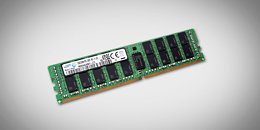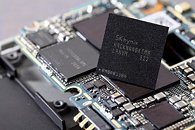Tuesday, November 20th 2018

DRAM Price-Fix Uncovered in China, 'Massive Evidence' Against Samsung, SK Hynix and Micron
The Chinese State Administration for Market Regulation has been conducting an anti-monopoly investigation of the global Dynamic RAM market. According to an interview of Wu Zenghou (bureau's head) in the Financial Times, this process has found "massive evidence" against the three companies (Samsung, Hynix, and Micron) that are responsible for the vast majority of this segment. "The anti-monopoly investigation into these three companies has made important progress", points out the investigator. On April these three companies were hit with a price-fixing suit on the same matter in the US, and this investigation seems to confirm those reports.
There is even an older precedent, as Samsung and Hynix were fined both by the US Department of Justice in 2005 and by the European Commission in 2010 on price-fixing allegations. The charges now are similar, and if the companies are found guilty, they could face fines of over $2.5 billion. Some analysts suggest this investigation could be part of the trade war between China and the US, with the former trying to get some leverage pushing the Chinese semiconductor company Fujian Jinhua Integrated Circuit as a bigger player on this market. One that, by the way, is being investigated on allegations of misappropriated trade secrets from Micron. Samsung and SK Hynix have accused China DRAM makers of industrial espionage, too.
Source:
Financial Times
There is even an older precedent, as Samsung and Hynix were fined both by the US Department of Justice in 2005 and by the European Commission in 2010 on price-fixing allegations. The charges now are similar, and if the companies are found guilty, they could face fines of over $2.5 billion. Some analysts suggest this investigation could be part of the trade war between China and the US, with the former trying to get some leverage pushing the Chinese semiconductor company Fujian Jinhua Integrated Circuit as a bigger player on this market. One that, by the way, is being investigated on allegations of misappropriated trade secrets from Micron. Samsung and SK Hynix have accused China DRAM makers of industrial espionage, too.


49 Comments on DRAM Price-Fix Uncovered in China, 'Massive Evidence' Against Samsung, SK Hynix and Micron
Everyone else is demanding fines but what good do fines do? Everyone here likely agrees Micron, Hynix and Samsung profited more from collusion than the alleged fines. They also agree that the proposed fine of $2.5 billion is inadequate to make them stop colluding. Fines are fines. They're not trust busting. Fines never stop trusts from doing anything. Only trust busting does.Not a permanent institution (I floated the idea of 10 years). An international board that reviews interactions amongst the trust busted companies for violations of the contract. Basically the board would replace the Department of Justice (and other nation's equivalent) in determining whether or not they could go forward with a deal (e.g. if a Sirrius XM situation arises where they all end up drowning together, a merger of the weakest may be permitted to promote the health of the market).Bad idea because production costs don't account for R&D. As nodes get smaller and smaller, R&D is going to keep rising relative to production. A competitive market accounts for that which trust busting achieves.
Funny I don't see the same being said about RTX or Intel prices, they're virtual monopolies as well in fact much bigger than the perpetrators mentioned here.
Yes & the tech industry needs to work around these limitations. If there is price fixing, like setting up a price floor below which they won't sell, then it makes sense to fine them heavily. If however there's just agreement to limit supply, the fines ought to be appropriated downwards. To increase supply these firms need to invest tens of billions of dollars, now how do you suppose they get this kind of money ~ govt subsidies, like in China?
I remember a time when 8GB DDR3 cost $15~20 US & supposedly these firms were selling them at a loss, that period (twice this decade) lasted about a year or more. I'm sure none remembers that or how Intel, Nvidia, Apple rarely lower the price of their products. What you're advocating sounds like price control, I'm not sure how that'll work out as the component makers are forced to reduce their profit margins but the likes of Intel, Apple, Nvidia et al make record profits year after year. Do you suppose the govt needs to make sure these companies don't loot the customers by limiting supply of their products?
Just to reiterate, fines are appropriate IMO so long as they act as a reasonable deterrent in dissuading such type of behavior, having said that capitalist markets are set up in such a way that mega corps will always find loopholes to exploit & in many cases cheat the customers. For that there needs to be tighter regulations & more/better taxation, again IMO.
For the record: "fines" are an inappropriate response to trusts. The money does not go to the damaged party (public at large). Fines are a relatively new phenomena mostly spurred on by EU and other nations have followed suit. USA still tends to address trusts by finding violations, ordering corrections, with follow up. In some cases (like Intel directly damaging AMD), courts do order the offender to pay damages to the offended.
And don't forget that you'd be going against the rights of the shareholders... Such a move could set a legal precedent that could endanger foreign investment.
Yet to be established in this case, now depending on the scope of "collusion" fines levied can be heavy/hard or punitive.
That can be remedied, however in this case the biggest beneficiary & "loser" (for a lack of better word) are corporations IMO. The DRAM consumption in the retail space is generally steady, but for servers/HPC/mobiles that number has exploded. Now even if the prices were relatively lower, I doubt we'd see cheaper phones/laptops/servers in any large numbers, except perhaps during the holiday sale.
The direct remedy IMO can be addressed by fining these companies & then passing on the benefits as one time tax cuts or subsidies directly for certain products, also limiting that to a reasonable quantity per customer to prevent abuse.
Here is the board of directors for Intel, you have EA executives, US defense executives, bankers, medical tech professors, philanthropists. Intel's Chairman of the board, one of the boards he sits on is Columbia sportswear.
newsroom.intel.com/biographies/board-of-directors/
This is no different.
Money does not hurt them because they can pass it off. If you want to make them play by the rules, they need to be scared. If I could commit financial fraud and only be penalized a portion of my earnings from said fraud, with no other repercussions, I would seriously consider how well I could pull off some financial fraud. However, knowing that it is likely that I would go to jail, I am not going to do so.
The CEO for Worldcom, which was the world’s second largest telecommunication company, is still incarcerated I believe.
Bernie Madoff and at least one of his sons went to jail. Madoff will die there.
Just a few examples off the top of my head of executives not getting away with it.
havenot hold them accountable and then complain they are colluding to inflate prices.I certainly don't appreciate the two different rule sets.
*fixed some crappy typing.
Corporations are not non-profits. They are designed to do one thing: Sell less for more*. That is not a recipe for moral behavior.
If people want corporations to stop behaving amorally they need to design the corporation so that its definition doesn't require it!Edit: *Corporations are also designed to shield the elite class from the legal system they craft and deploy. Legal insiders recently even said, without a hint of concern — as if it was the most natural and logical thing in the world, that the Justice Department chooses to fine corporations rather than jail their executives. The rationale was that fines somehow don't cause people to lose their jobs (or pensions, etc.) but legal accountability for the executives will somehow cause the companies to be destroyed (as if it's impossible to hire or promote people to fill empty executive roles). The rationale was that this policy is for the benefit of the ordinary workers but it's clear that it's all about what Bierce said: a lack of individual responsibility on the part of the individuals obtaining the profit.Enron's chief financial guy is now the largest landowner in Colorado, apparently because he bailed in time to not get caught in the dragnet.
The reason corporations, governments, and individuals cheat is usually because they feel they can get away with it. The cost/benefit ratio appears to be favorable.
11 sued over selling Samsung OLED secrets to Chinese company
People, though, are typically ready to jump onto a team and put on their jersey. Also, guilt can be somewhat subjective.
Enabling, for example, China to gain unfair advantage in the market by kneecapping its competition (such as via enabling IP theft and/or heavy fines/sanctions) to "solve" the problem with price fixing is hardly smart. In that case, those who are doing that (enabling that gain of unfair advantage) actually are guilty. That said, it's also not smart to do nothing about price fixing if it, indeed, remains a serious problem.
Probably for the first time China is using American companies against each other, classic Empire move ~ Divide & Rule :(
Which is fundamentally the problem with DRM: the three major DRAM manufacturers Samsung (South Korea), SK Hynix (South Korea), and Micron (United States) are international. South Korea could keep Samsung and SK Hynix in check but Micron is out of their jurisdiction so they don't. United States can't do much of anything because the majority of the market is out of reach in South Korea. USA will jump into Apple v. Microsoft, Intel v. AMD, Intel v. NVIDIA, etc. because they're all American so the federal government is able to regulate it. There's no global anti-trust body to address international trusts. That's really what is necessary.
UN has the Commission on International Trade Law but it doesn't have a court with global jurisdiction to arbitrate cases and a legal arm to enforce rulings. UN's doctrine would have to be expanded to include such powers and countries like China, Russia, Iran, Venezula, etc. would never agree to that kind of expansion. Depends on how the political winds are blowing, USA might not even support it.
There should be a global trademark, copyright, and patent office too.